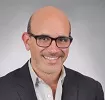In an important decision issued by the Federal Circuit on August 31, 2009 in In Re Bose Corporation (Opp. No. 91157315), the Court struck down the Trademark Trial and Appeal Board's (Board) controversial fraud doctrine decision set forth in Medinol, Inc. v Neuro Vasx Inc., 67 USPQ 2D 1205 (TTAB 2003). In Medinol and its progeny, the Board articulated a strict liability standard for fraud on the USPTO, holding that fraud occurs when material representations of fact are made in the procurement or maintenance of a registration that an applicant or registrant knows or should know to be false or misleading. In overruling Medinol, the Federal Circuit stated: "[b]y equating 'should have known' of falsity with a subjective intent, the Board erroneously lowered the fraud standard to a simple negligence standard." Reaffirming the principle that fraud can only be established where there is a willful intent to deceive, the Court held that a trademark registration "is obtained fraudulently under the Lanham Act only if applicant or registrant knowingly makes a false, material representation with the intent to deceive the PTO." However, recognizing the difficulty of obtaining direct evidence of intent to deceive, the Court still allowed that intent to deceive can be inferred from indirect and circumstantial evidence, so long as it is clear and convincing.
In Bose, Bose Corporation (Bose) opposed Hexawave, Inc.'s (Hexawave) application for the mark HEXAWAVE on the grounds that it was likely to cause confusion with, inter alia, Bose's registration for the mark WAVE. Hexawave counterclaimed for cancellation of Bose's WAVE registration, alleging that the combined Section 8 and 9 application for renewal fraudulently asserted the mark was in use on all goods covered in the registration. In fact, at the time the renewal application was signed, Bose's general counsel knew Bose had stopped manufacturing and selling some of the covered goods. Bose's general counsel testified, however, that when he signed the renewal application, Bose continued to repair WAVE audio tape recorders and players. He further testified he believed the WAVE mark was in use in commerce in connection with all of the goods covered in the registration, including audio tape recorders and players, because Bose repaired such WAVE products and then shipped such products in commerce when they were returned to customers. The Board ultimately held, however, that the shipment of repaired product was not use in commerce sufficient to maintain the registration.
The Federal Circuit agreed that the statement in the renewal application regarding use of the mark WAVE was false, because Bose had stopped manufacturing and selling audio tape recorders and players. Notwithstanding such falsity, however, the Court held that the statement did not constitute fraud because Bose's general counsel believed it was true at the time he signed the renewal application. The reasonableness of this belief was not relevant to the Court's fraud analysis, because there is no fraud if a false representation is the result of inadvertence or an honest misunderstanding without a willful intent to deceive.
The Court made it clear that fraud requires clear and convincing evidence to support an inference of deceptive intent, which was lacking in Bose. The Court therefore reversed the Board's order canceling Bose's WAVE registration and remanded to allow the registration to be restricted to cover the appropriate goods.
The long-awaited Bose decision is welcome news for trademark owners who shall no longer be subject to the harsh consequences of a strict liability standard for fraud under Medinol. Evidence of subjective intent to deceive will need to be proven by clear and convincing evidence. Although subjective intent can be inferred from indirect circumstantial evidence, the Bose decision makes clear that the inference will not be drawn lightly but rather only where the evidence indicates sufficient culpability.
Bose will clearly have a dramatic impact on cases pending under Medinol as litigants test the line of when circumstantial evidence shows a subjective intent to deceive. However, because the Bose Court specifically did not decide whether reckless disregard of the truth or falsity of material statements contained in submissions to the USPTO would satisfy the intent to deceive requirement (an issue that was not before it), the full effect of Bose on pending and future cases, or perhaps even cases already decided under Medinol, remains something of an open question.
The content of this article is intended to provide a general guide to the subject matter. Specialist advice should be sought about your specific circumstances.


